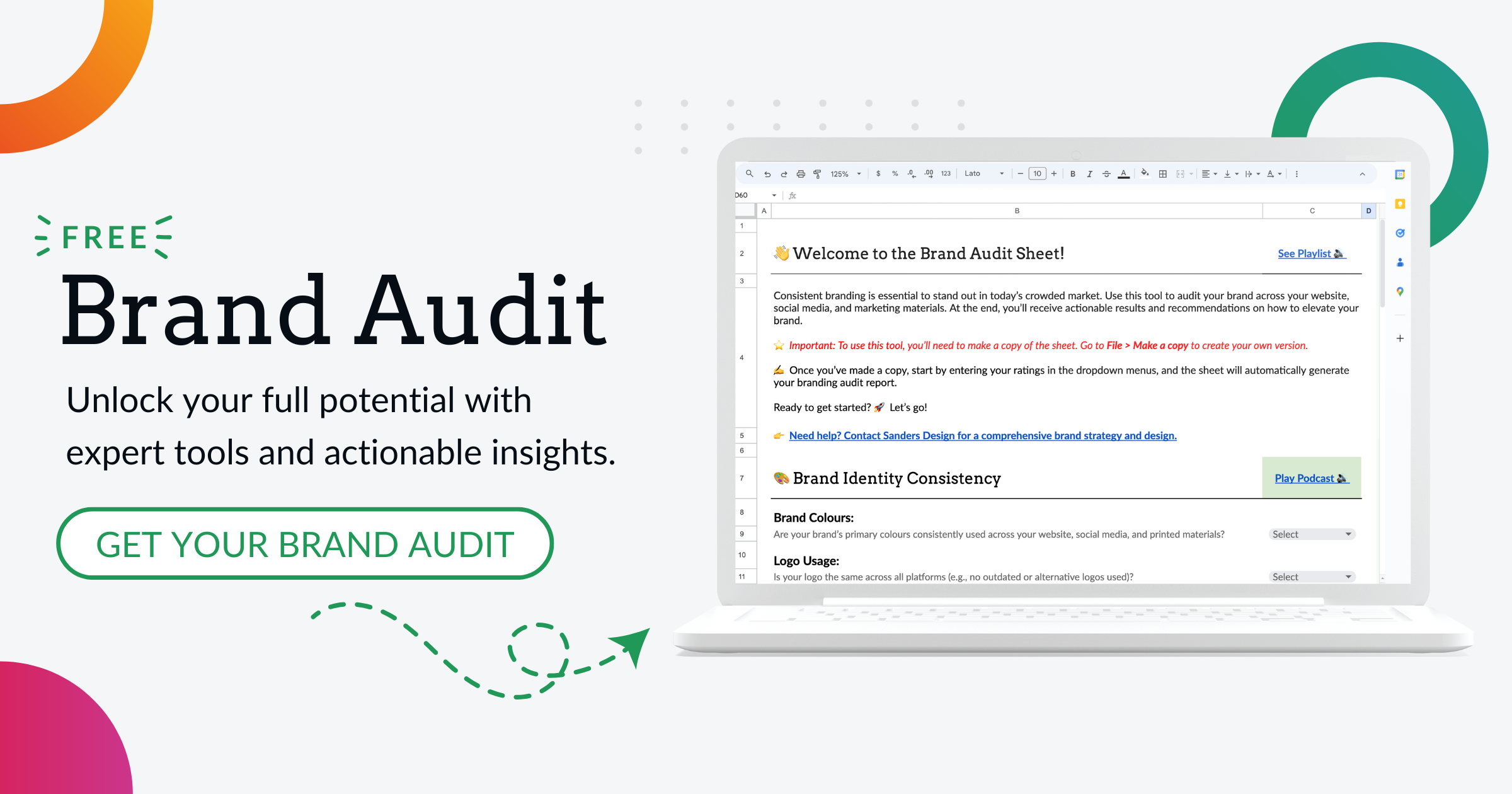Revamp Your Online Presence: The Importance of Web Design in Oadby

As more consumers flock to the internet to discover products and services, it’s crucial for businesses to craft a captivating and user-friendly website that highlights their brand and offerings. By revamping your online presence, you can outshine the competition, draw in new customers, and foster trust with your audience. Embrace the digital wave and watch your business thrive!
There are several reasons why you might consider revamping your website. Firstly, technology is constantly evolving, and what may have been cutting-edge a few years ago may now be outdated. By revamping your website, you can take advantage of the latest design trends and technologies to create a modern and visually appealing site.
Secondly, consumer expectations are constantly changing. Users now expect websites to be fast, easy to navigate, and mobile-friendly. If your current website does not meet these expectations, it may be time for an upgrade.
Lastly, revamping your website can also help improve your search engine rankings. Search engines like Google prioritise websites that are well-designed, user-friendly, and regularly updated. By revamping your website with SEO in mind, you can improve your chances of ranking higher in search results and attracting more organic traffic.
The Basics of Web Design: Understanding the Importance of Aesthetics and Functionality
When it comes to web design, aesthetics play a crucial role in attracting and retaining visitors. A visually appealing website can make a strong first impression and capture the attention of users. Colours, fonts, images, and layout all contribute to the overall aesthetic appeal of a website.
In addition to aesthetics, functionality is equally important in web design. A well-designed website should be easy to navigate, with clear menus and intuitive user interfaces. Users should be able to find the information they are looking for quickly and easily. Functionality also includes features such as contact forms, search bars, and social media integration.
The role of web design goes beyond just aesthetics and functionality. It also plays a crucial role in building trust with customers. A professionally designed website can instil confidence in your brand and make users more likely to engage with your business. On the other hand, a poorly designed website can give the impression that your business is unprofessional or unreliable.

Why WordPress is a Top Choice for Small Business Websites
When it comes to building a website, WordPress is one of the most popular choices, especially for small businesses. There are several reasons why WordPress is a top choice for small business websites.
Firstly, WordPress is incredibly easy to use and customise. Even if you have no prior experience with web design or coding, you can easily create and manage your own website using WordPress. The platform offers a user-friendly interface and a wide range of customisable themes and plugins that allow you to create a unique and professional-looking website.
Secondly, WordPress is a cost-effective solution for small businesses. Unlike custom-built websites, which can be expensive to develop and maintain, WordPress offers a range of free and affordable themes and plugins that can help you create a professional website on a budget. Additionally, WordPress websites are easy to update and maintain, which can save you time and money in the long run.
Lastly, WordPress offers excellent scalability. Whether you are just starting out or have plans to expand your business in the future, WordPress can accommodate your needs. The platform allows you to easily add new pages, features, and functionality as your business grows.
The Benefits of WooCommerce for E-commerce Websites
If you are running an e-commerce website, WooCommerce is an excellent choice for managing your online store. WooCommerce is a plugin for WordPress that allows you to easily set up and manage an e-commerce store on your website.
One of the main benefits of using WooCommerce is its ease of use. The plugin offers a user-friendly interface that makes it easy to add products, manage inventory, and process orders. Even if you have no prior experience with e-commerce, you can quickly get up and running with WooCommerce.
WooCommerce also offers a range of features and customisation options that allow you to create a unique and professional-looking online store. You can choose from a wide range of themes and plugins to customise the look and functionality of your store. Additionally, WooCommerce integrates seamlessly with WordPress, allowing you to manage your entire website from one dashboard.
Another major benefit of using WooCommerce is its cost-effectiveness. The plugin itself is free to use, although there are premium extensions available for additional functionality. Compared to other e-commerce platforms, WooCommerce offers a more affordable solution for small businesses.
Building a Strong Brand Identity through Web Design
Building a strong brand identity is essential for the success of any business. Your brand identity is what sets you apart from your competitors and helps customers recognise and remember your business. Web design plays a crucial role in building and reinforcing your brand identity.
One of the ways web design can help build brand identity is through visual elements such as colours, fonts, and images. These elements should be consistent with your brand’s logo and other marketing materials to create a cohesive and recognizable brand image.
Web design also helps communicate your brand’s values and personality. The layout, tone of voice, and overall user experience should reflect your brand’s unique identity. For example, if your brand is known for being fun and playful, your website should have a vibrant and energetic design.
Successful brands understand the importance of consistency in web design. Consistency in design elements such as colours, fonts, and layout helps create a cohesive and memorable brand image. This consistency should be maintained across all platforms, including your website, social media profiles, and marketing materials.

The Impact of Mobile Responsiveness on User Experience
In today’s mobile-first world, having a mobile-responsive website is no longer optional. With more and more users accessing the internet on their smartphones and tablets, it is essential for your website to be optimised for mobile devices.
Mobile responsiveness refers to the ability of a website to adapt and display properly on different screen sizes and devices. A mobile-responsive website automatically adjusts its layout, font sizes, and images to provide an optimal viewing experience on any device.
The impact of mobile responsiveness on user experience cannot be overstated. If your website is not mobile-responsive, users will have a difficult time navigating and interacting with your site on their mobile devices. This can lead to frustration and a high bounce rate, meaning users leave your site without taking any action.
On the other hand, a mobile-responsive website provides a seamless and user-friendly experience across all devices. Users can easily navigate your site, read content, and make purchases or inquiries on their smartphones or tablets. This improves user satisfaction and increases the chances of conversions.
To optimise mobile responsiveness, there are several best practices to follow. Firstly, use a responsive web design framework or theme that automatically adjusts the layout and design elements based on screen size. Secondly, optimise images and videos for mobile devices to ensure fast loading times. Lastly, test your website on different devices and screen sizes to ensure it looks and functions properly.
SEO and Web Design: How They Work Together to Boost Your Online Presence
Search engine optimisation (SEO) is the practice of optimising your website to improve its visibility in search engine results pages. While SEO primarily focuses on content and keywords, web design also plays a crucial role in SEO.
Web design affects SEO in several ways. Firstly, search engines prioritise websites that are well-designed and user-friendly. A poorly designed website with slow loading times, broken links, or a confusing navigation structure will not rank well in search results.
Secondly, web design affects the user experience, which is an important factor in SEO. If users have a positive experience on your website, they are more likely to stay longer, engage with your content, and share it with others. This can lead to higher rankings in search results.
To optimise web design for SEO, there are several best practices to follow. Firstly, ensure your website has a clean and organised structure with clear navigation menus. This makes it easier for search engines to crawl and index your site.
Secondly, optimise your website’s loading speed. Slow-loading websites not only frustrate users but also negatively impact SEO. Compress images, minify code, and use caching plugins to improve loading times.
Lastly, make sure your website is mobile-responsive. As mentioned earlier, mobile responsiveness is not only important for user experience but also for SEO. Search engines prioritise mobile-friendly websites in their rankings.
The Role of User Experience in Web Design for Small Business Websites
User experience (UX) refers to the overall experience that users have when interacting with a website or application. A positive user experience is essential for small business websites as it can lead to higher customer satisfaction, increased conversions, and improved brand loyalty.
The importance of user experience cannot be overstated. If users have a difficult time navigating your website, finding the information they need, or completing a purchase, they are likely to leave and never return. On the other hand, if users have a positive experience on your website, they are more likely to stay longer, engage with your content, and take the desired action.
To optimise user experience on your small business website, there are several best practices to follow. Firstly, ensure your website has a clear and intuitive navigation structure. Users should be able to find the information they need quickly and easily.
Secondly, make sure your website loads quickly. Slow-loading websites frustrate users and can lead to high bounce rates. Optimise images, minify code, and use caching plugins to improve loading times.
Lastly, focus on creating engaging and valuable content. Users are more likely to stay on your website and engage with your content if it provides value and meets their needs. Use clear and concise language, break up content with headings and bullet points, and include relevant images and videos.

The Importance of Regularly Updating and Maintaining Your Website
Regularly updating and maintaining your website is essential for its long-term success. There are several reasons why website maintenance is important.
Firstly, regular updates help ensure the security of your website. Hackers are constantly looking for vulnerabilities in websites to exploit. By keeping your website’s software, plugins, and themes up to date, you can protect it from security threats.
Secondly, regular updates help improve the performance of your website. Updates often include bug fixes and performance improvements that can make your website faster and more reliable. This improves the user experience and can lead to higher conversions.
Lastly, regular updates help keep your website compatible with the latest technologies and devices. As technology evolves, new devices and browsers are introduced that may not be compatible with older versions of your website. By regularly updating your website, you can ensure it remains accessible to all users.
In addition to regular updates, it is also important to regularly monitor and maintain your website. This includes tasks such as backing up your website’s data, monitoring for malware or security breaches, and optimising performance.
Choosing the Right Web Design Agency to Help You Revamp Your Online Presence
If you are considering revamping your online presence but don’t have the time or expertise to do it yourself, hiring a professional web design agency can be a great option. However, choosing the right agency is crucial for the success of your project.
When choosing a web design agency, there are several factors to consider. Firstly, look for an agency with experience in your industry or niche. They will have a better understanding of your target audience and can create a website that meets their needs.
Secondly, consider the agency’s portfolio and client testimonials. Look for examples of their previous work to get an idea of their design style and quality. Additionally, read client testimonials or reviews to get an idea of their reputation and customer satisfaction.
Before hiring a web design agency, it is important to ask the right questions. Ask about their process, timeline, and pricing structure. Make sure they have a clear understanding of your goals and objectives and can deliver on them.
Working with a professional web design agency offers several benefits. Firstly, they have the expertise and experience to create a high-quality website that meets your needs. They can also provide valuable insights and recommendations based on their industry knowledge.
Secondly, working with a web design agency saves you time and allows you to focus on running your business. Instead of spending hours trying to figure out how to design and build a website yourself, you can leave it in the hands of professionals.
Lastly, a professional web design agency can help ensure your website is optimised for SEO, mobile responsiveness, and user experience. They have the knowledge and tools to implement best practices and ensure your website is set up for success.

In conclusion, revamping your online presence is essential for the success of your business in today’s digital age. A well-designed and user-friendly website can attract new customers, build trust with your audience, and improve your search engine rankings.
By understanding the basics of web design, choosing the right platform like WordPress or WooCommerce, building a strong brand identity, optimising for mobile responsiveness and SEO, focusing on user experience, regularly updating and maintaining your website, and working with a professional web design agency, you can revamp your online presence and take your business to new heights.
If you’re interested in learning more about web design in Oadby, you should definitely check out Sanders Design’s blog. They have a variety of informative articles on different aspects of web design. One article that caught my attention is “Common Web Design Mistakes to Avoid.” It provides valuable insights into the most common pitfalls that web designers often fall into and offers practical tips on how to avoid them. You can read the full article here.


Author: Martin Sanders
I empower businesses to connect with their customers and boost sales. Ready to take your revenue to new heights? Get in touch with me today, and let’s make it happen!


